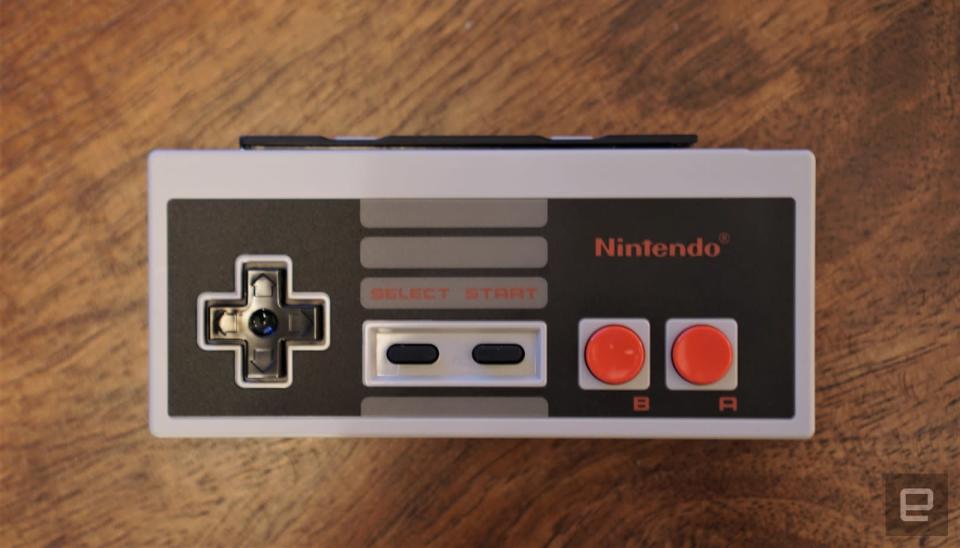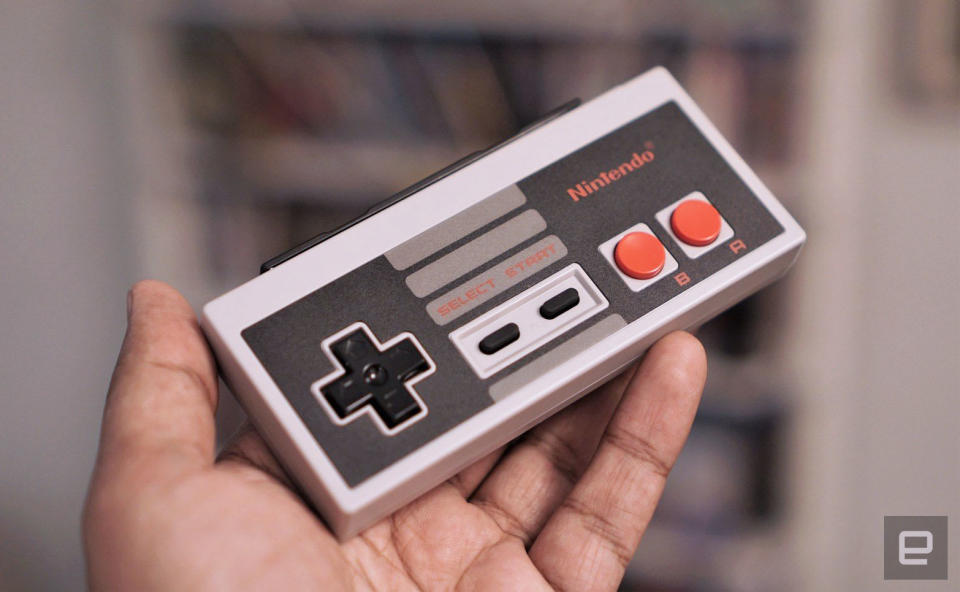Nintendo’s Switch NES gamepads are an unnecessary blast from the past
They're too expensive for their limited functionality.
How much would you pay to be transported back into the 8-bit era? Nintendo already gave us a taste of nostalgia with the $60 NES Classic, and now it's offering a similar experience with a pair of NES controllers for the Switch. The big downsides: They also cost $60 and they're only available for Switch Online subscribers. And, not that this comes as a surprise, they're practically useless outside of NES games on the Switch.
I'll be honest, I've never really liked the NES controller. As a kid, I hated the way it dug into my palms and lacked any sort of contours. When the SNES arrived with its more ergonomic gamepad, which also featured more buttons on the front, and better directional pad and shoulder buttons, I was happy to let my NES gather dust. (The SNES controller was such a groundbreaking design that its influence is still felt today -- you can see traces of it in all of Sony and Microsoft's gamepads.) But in retrospect, I can see how important the NES controller was for the gaming world. It represented a huge leap over the clunky joysticks and huge keyboards earlier consoles came with. It was simple and approachable, something kids and adults alike could use with zero training.

The Switch NES controllers look just like the original, with the same blocky corners, plastic-yet-solid construction and concave buttons that hold your fingers just right. But of course, there are some major differences: They're wireless, and they feature L and R buttons at the top, nestled into a Switch rail connection. You charge them by sliding them onto your Switch while it's docked. But unlike the console's Joy-Cons, you're not meant to hold the Switch while the NES pads are connected. They're solely meant for detached wireless play.
After sliding on the controllers and running through a system update, I was ready for some retro action. That's when I ran into my first issue: They can't get to the home screen in normal Switch games. My console automatically resumed Super Smash Bros. Ultimate, and I was annoyed to find that I had no way to exit the game with the NES controller. I had to turn on a Joy-Con just to do that. Once I got back to the home screen, I had no trouble navigating around and launching the NES game collection on the retro gamepad.
My main testing criteria for NES emulators and gear is simple: How well do they play Super Mario Bros. 3? It's 8-bit platforming at its most refined, which makes it a great test for controller accuracy and reliability. As I re-learned how to fly Racoon Mario and traversed the first world of the game, I was surprised to find that I genuinely enjoyed using the NES gamepad. It was like flashing back to my childhood bedroom, where I'd spend hours diving into Mario 3 with my younger brother.

Of course, the controller feels much smaller now in my grown-up hands, and it's far from ergonomic. But it's well suited for a game like Mario 3, where you need to hold down the B button to run, while occasionally rocking your thumb on the A button to jump. That's what I spent years doing as a kid, and it just feels more natural when the buttons are laid out horizontally, instead of the angled positioning on modern controllers. It might just be muscle memory, but I felt far more comfortable playing Mario 3 on the NES pad compared to either the Joy-Cons or pricey Switch Pro Controller. Jumping into River City Ransom and Ninja Gaiden was a similar blast from the past -- beating up street thugs and ninja jumping across obstacles felt just as good as before.
But does anyone really need the NES gamepads? That's the tougher question. At $60 for the pair, it seems insanely expensive for controllers that are only meant for emulated NES titles. And don't forget you'll also have to subscribe to the Switch Online service ($20 a year for individuals, $35 a year for families) to play those games. You're better off just shelling out $70 for the Switch Pro controller, which is a huge upgrade over the standard Joy-Cons for most modern titles. The NES gamepads might be an easier sell if they were closer to $40, at least then it wouldn't feel like you're shelling out for a full-priced game.




